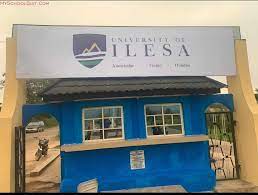
Are you wondering which courses are no longer marketable or relevant in Nigeria’s current job climate? You’re not alone. With rising unemployment rates and a competitive labor market, many Nigerian students and parents are now more intentional about choosing courses that offer clear career paths and financial stability.
In this guide, we explore the Top 10 Most Useless Courses to Study in Nigeria in 2025, explain why they’re considered less useful in today’s economy, and provide better alternatives to consider.
⚠️ Disclaimer: This post is not meant to degrade any field of study but to highlight courses that offer limited career prospects in Nigeria’s current economic reality. Every course has value, but some may not align with the present-day job market or technological advancements.
🔎 What Makes a Course “Useless” in Nigeria?
A course may be considered “useless” in Nigeria if it:
- Offers few job opportunities after graduation
- Has low earning potential
- Is outdated or no longer relevant to modern industries
- Is overpopulated with graduates competing for scarce jobs
- Lacks practical skills or innovation focus
✅ Top 10 Most Useless Courses to Study in Nigeria (2025)
1. Philosophy
Why It’s Considered Useless:
Philosophy lacks direct career pathways in Nigeria. Graduates often struggle to find jobs unless they transition into unrelated fields like teaching or administration.
Better Alternative:
- Psychology
- Sociology with a specialization in social work or counseling
2. Library and Information Science
Why It’s Considered Useless:
With digital libraries and AI replacing manual cataloging, many Nigerian graduates in this field face limited job options.
Better Alternative:
- Data Science
- Information Systems or ICT
3. Zoology
Why It’s Considered Useless:
Zoology offers few jobs in Nigeria unless you’re venturing into academics or wildlife conservation — both of which are underfunded.
Better Alternative:
- Veterinary Medicine
- Environmental Science or Agricultural Science
4. Animal Science
Why It’s Considered Useless:
This course is often too narrow and lacks entrepreneurial guidance. Most graduates end up unemployed or self-employed without support.
Better Alternative:
- Agricultural Economics
- Agribusiness Management
5. Religious Studies / Theology
Why It’s Considered Useless:
While important in spiritual settings, this course lacks job relevance in secular sectors. Opportunities are mostly limited to churches or theological schools.
Better Alternative:
- Counseling Psychology
- Community Development
6. History and International Studies
Why It’s Considered Useless:
Though interesting academically, history degrees in Nigeria do not lead to many jobs unless you enter politics, diplomacy, or teaching.
Better Alternative:
- International Relations with foreign language certification
- Political Science with focus on diplomacy or governance
7. Archaeology
Why It’s Considered Useless:
There are very few archaeological institutions or museums in Nigeria offering career opportunities.
Better Alternative:
- Tourism and Hospitality Management
- Cultural Studies with a digital media focus
8. Adult Education
Why It’s Considered Useless:
With an oversaturated education sector, this course offers little to no unique advantage, and adult literacy programs are underfunded.
Better Alternative:
- Educational Technology
- Curriculum Development
9. Fisheries and Aquaculture
Why It’s Considered Useless:
This course is often theoretical in Nigeria, with minimal support for commercial fish farming upon graduation.
Better Alternative:
- Agricultural Extension and Rural Development
- Food Science and Technology
10. Peace and Conflict Studies
Why It’s Considered Useless:
Although relevant globally, the lack of local demand in Nigeria makes it hard for graduates to find jobs in peacebuilding organizations.
Better Alternative:
- Political Science with specialization in conflict resolution
- Law or Criminology
❌ Other Courses Facing Decline in Nigeria
- Fine and Applied Arts
- Forestry and Wildlife
- Linguistics (without bilingual or translation specialization)
- Home Economics
- Crop Production
🎯 Factors to Consider Before Choosing a Course in Nigeria
To avoid falling into the “useless course” trap, consider the following:
1. Market Demand
- Is the course aligned with Nigeria’s current job market?
2. Employability
- What are the job options after graduation?
3. Skill Acquisition
- Does the course equip you with hands-on or digital skills?
4. Entrepreneurship Potential
- Can you build a business or consultancy with the knowledge?
5. Global Relevance
- Can the course open international opportunities?
🚀 Best Courses to Consider in 2025 Nigeria
Instead of courses with limited relevance, consider these marketable and future-proof alternatives:
| In-Demand Course | Reason |
|---|---|
| Computer Science | Tech jobs, freelancing, and remote work opportunities |
| Nursing / Medicine | High job demand locally and abroad |
| Law | Governance, policy, and human rights sectors |
| Mass Communication | Digital marketing, media, content creation |
| Accounting / Finance | Highly employable in private and public sectors |
| Agricultural Science | Government support for agropreneurs |
| Digital Marketing | Lucrative and in-demand freelance career |
| Data Science | Global demand for data analysts and AI experts |
🙋 FAQs – Most Useless Courses in Nigeria
1. Is any course truly useless?
No course is completely useless. However, some offer limited job prospects in Nigeria’s economy without additional skills or qualifications.
2. Can I succeed with a so-called “useless” course?
Yes — with the right skills, certifications, or a postgraduate degree, you can still build a career.
3. Should I avoid all arts or humanities courses?
Not necessarily. Just ensure they are combined with relevant skills like digital communication, foreign languages, or teaching credentials.
4. What should I do if I’m already studying one of these courses?
You can upskill by learning in-demand skills online, start a blog or YouTube channel, or pursue a professional certification.
5. Are these courses useless abroad too?
Some of them (like archaeology or theology) have better value abroad, but still require additional training or language skills.
✨ Final Thoughts
Choosing a university course in Nigeria should go beyond passion — it must also factor in economic reality, employability, and innovation. While no course is entirely useless, some are undeniably less promising in Nigeria’s context.
Before you register for JAMB or select a course, do your research, talk to professionals in the field, and consider future trends. The goal is not just to earn a degree, but to build a career and a future.





![FUTES-IYIN Cut Off Mark 2025/2026 is Out [All Courses] FUTES-IYIN Cut Off Mark 2025/2026 is Out [All Courses]](https://myeduplug.com/wp-content/uploads/2025/10/FUTES-IYIN-4.jpeg)
![FUADSI Cut Off Mark 2025/2026 is Out [All Courses] FUADSI Cut Off Mark 2025/2026 is Out [All Courses]](https://myeduplug.com/wp-content/uploads/2025/10/FUADSI-2.jpeg)
![KASU Cut Off Mark 2025/2026 is Out [All Courses] KASU Cut Off Mark 2025/2026 is Out [All Courses]](https://myeduplug.com/wp-content/uploads/2025/07/KASU.jpeg)
![UNIBEN Cut Off Mark 2025/2026 is Out [All Courses] UNIBEN Cut Off Mark 2025/2026 is Out [All Courses]](https://myeduplug.com/wp-content/uploads/2025/03/UNIBEN.jpeg)









